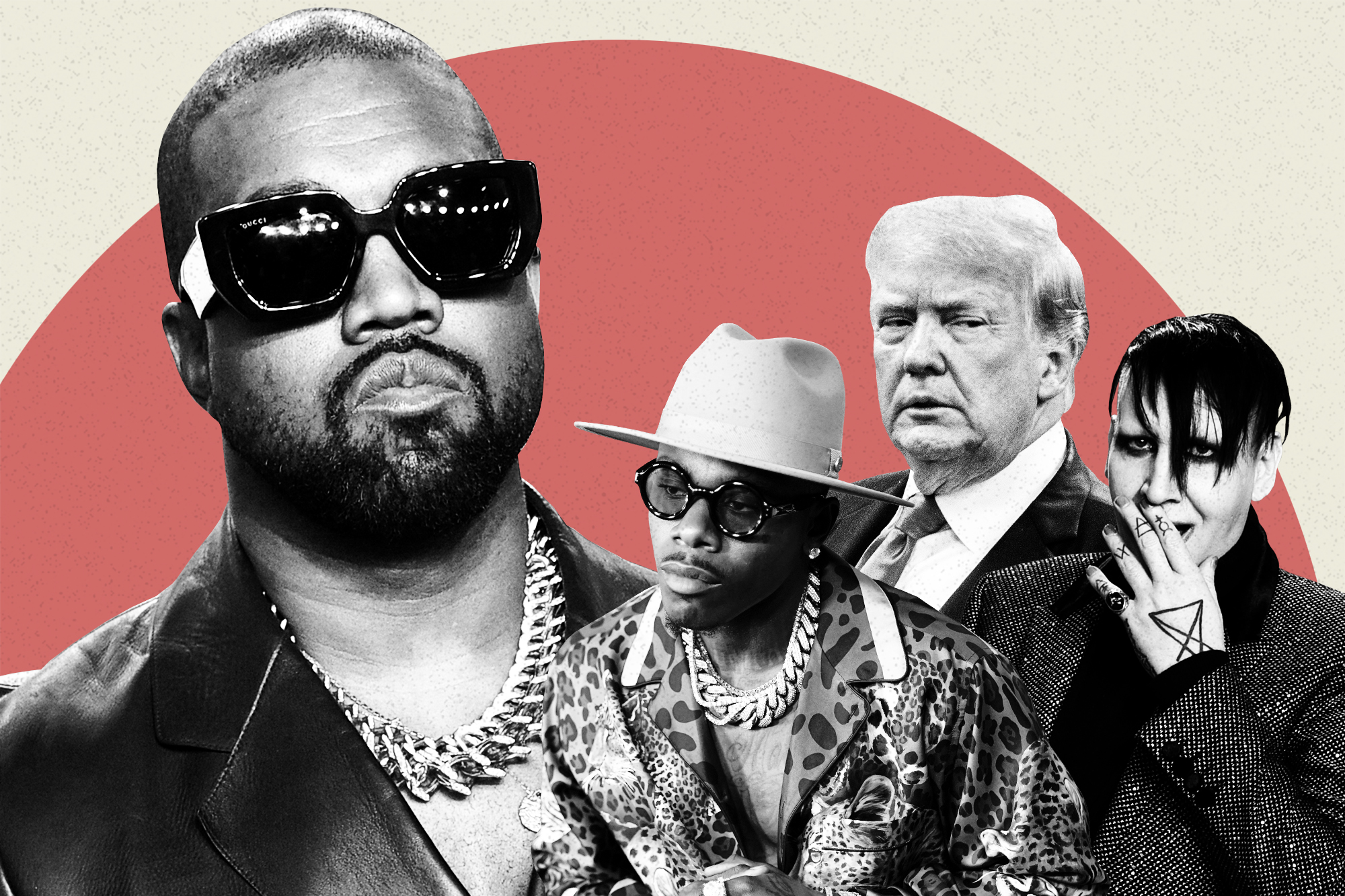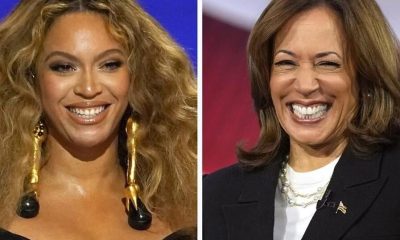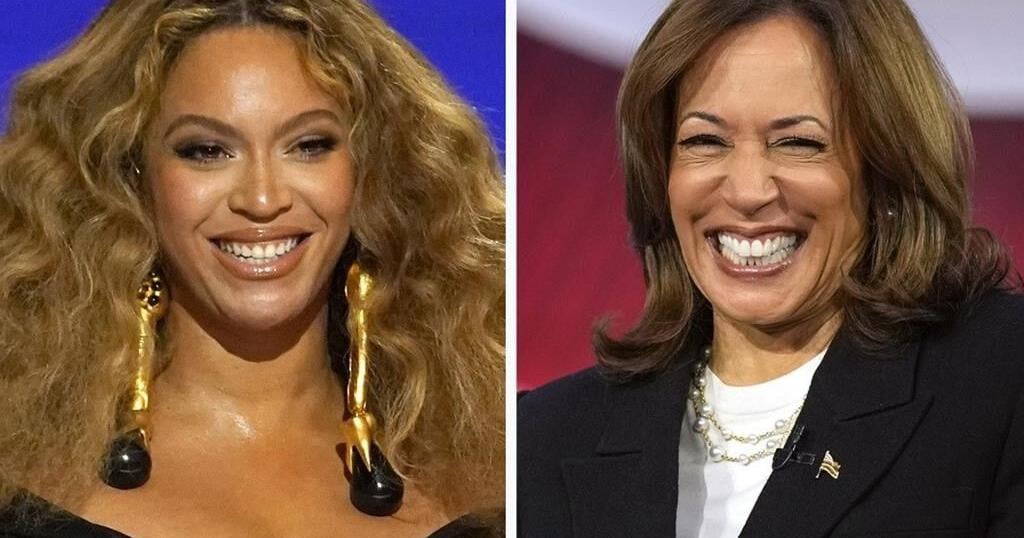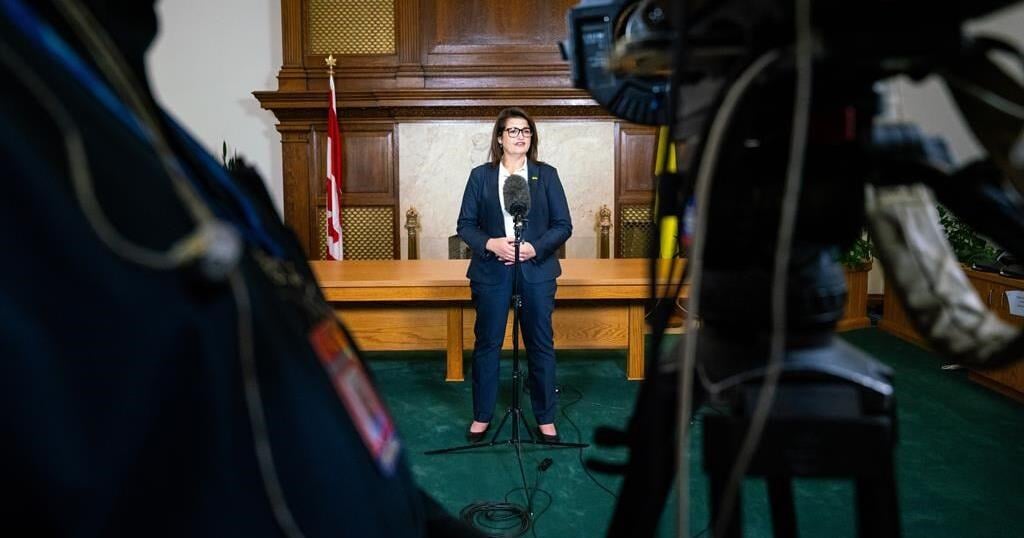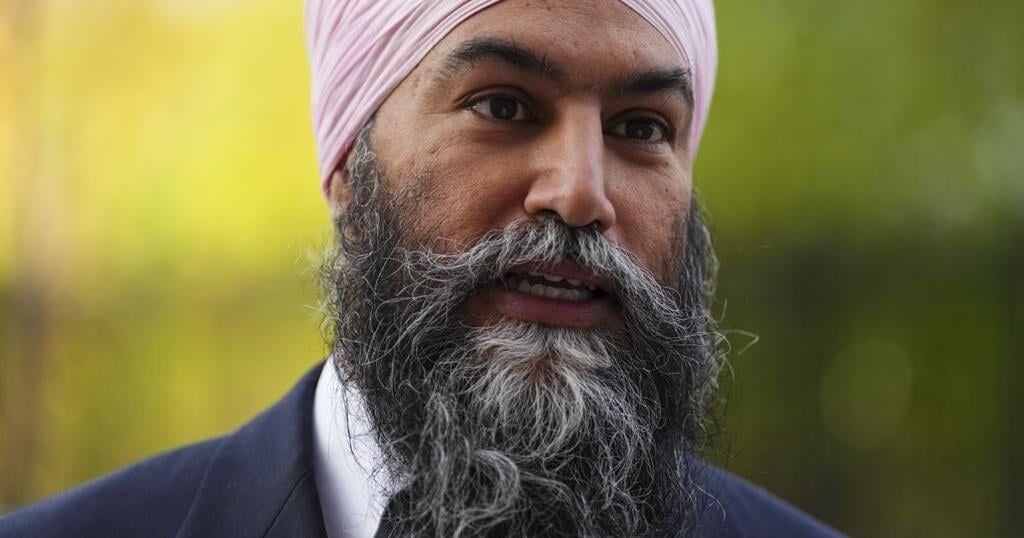.cms-textAlign-lefttext-align:left;.cms-textAlign-centertext-align:center;.cms-textAlign-righttext-align:right;.cms-magazineStyles-smallCapsfont-variant:small-caps;
The scene would have been surreal even absent its plentiful cultural baggage: Three men clad head to toe in black, donning ski masks and face paint, lurking on the front steps of a nondescript mid-century home that just happened to have been dropped into the middle of an NFL stadium, surrounded by 40,000 rapt fans.
The maestro of this spectacle was Kanye West, arguably the modern era’s most accomplished provocateur. And although he was at the head of the porch-loitering troika as they premiered West’s long-awaited new album “Donda,” it was the other two who invited his most recent in an unbroken decade-plus of controversies: West flanked himself with collaborators DaBaby, the chart-topping rapper currently doing a penance tour for making flagrantly homophobic public comments, and Marilyn Manson, the Y2K-era shock rocker who was dropped by his record label this year after multiple women accused him of sexual assault and abuse.
Over the course of his nearly 20 years at the forefront of the popular culture, West has pushed buttons and earned the opprobrium of everyone from George W. Bush to Taylor Swift. He’s remade himself as a fashion designer, and dabbled in presidential politics both as a candidate himself and as a supporter of Donald Trump. His ability — or maybe just his willingness — to court controversy is a key part of his business model.
In this, the “Donda” event earned him yet another banner week. The Daily Beast’s blunt-force headline was representative: “Kanye West Brings Out a Homophobe and an Accused Rapist at DONDA Chicago Show.” Some critics called for Apple Music, which livestreamed the event, to be held “accountable.” British outlet the Independent refused to rate the record due to Manson’s involvement. (None of which, of course, prevented the album from racking up astounding streaming numbersfor its debut on August 29.)
In 2021, “Kanye West courts backlash” might be uncomfortably close to “dog bites man.” But this round of censure was telling not just of the man himself, but American cultural politics writ large. For West’s critics, the sins of DaBaby and Manson, serious as they might be, become almost secondary to West’s giving them — quite literally, in this case — a “platform.” By refusing to shun such figures, West has re-invented himself as a sort of impresario for the cancelled. And in placing himself next to Manson particularly, once the bête noire of mainstream American morality in his own right, West has illustrated exactly how much our cultural conversation about it has changed.
As maybe heavy metal’s last iconic public figure in the late 1990s, Manson’s combination of adolescent rage, provocative androgyny and Satanic shadowboxing earned him widespread protest from religious groups, the wary prohibition of concerned parents across middle America and even blame for the Columbine massacre. Today, such things register as kitsch — if they register at all. In 2021, the quickest way to gin up outrage isn’t to invoke taboo spiritual forces; it’s to flout liberal social norms in the manner in which West has become so skilled — whether through these most recent antics or his embrace of Donald Trump, whom he reportedly also invited to the event. (No word on whether the former president was asked to lay down a verse himself.)
To be “transgressive” in today’s mainstream pop culture — or at least to be perceived as such — is not to do something cancel-worthy, but to willingly align oneself with the cancelled. West’s bromance with Trump was a telling prelude to his current iteration. For all their differences, the quality that brought the two men together is a profound belief in the value of provocation for provocation’s sake. The substance of what is actually said is almost secondary to the reaction it earns.
That kind of trolling, and its attendant shaming, have been used to enforce cultural norms since antiquity. But West, once again, has produced a cultural innovation. By purposely stoking a controversy-by-proxy that almost obscures his accomplices’ original sins, he’s revealed the matryoshka-like nature of mainstream American cultural discourse — which in turn feeds an endless stream of tabloid, cable, and inevitably political controversies.
The Trump-West principle of controversy as an inherent good transfers to the company the latter now keeps. Whatever one thinks of him, it strains credulity to imagine West’s inclusion of Manson, for example, as an explicit endorsement of sexual violence. The intended message, rather, is one of defiance: West (or Trump) will not be proscribed in the company he keeps (or his speech) by the offense it might cause to a wider audience.
The gravity of that offense has grown much stronger in the nearly two decades since West launched his career, just as Manson’s mainstream popularity was waning. Homophobia, once endemic to mainstream rap music, is now largely taboo; one of the genre’s biggest stars is an out gay man. (West himself has been sharply critical of homophobia in rap culture; he removed another recent collaboration with DaBaby from streaming services in the wake of the latter rapper’s comments, which he himself addresses on “Donda” in a neat ouroboros of controversy.)
In Manson’s case, allegations of sexual assault are treated far more seriously today than in the era where Harvey Weinstein’s predations were whispered about as a morbid inside joke. But more relevant to West’s success as a provocateur than Americans’ decreasing tolerance for such speech and behavior is the ongoing debate over whether or not to shun the achievements of those who take part in it. As Armin Rosen wrote in The Bulwark of the musical collaboration between the three men in question, West has “gathered unto himself the cancelled in order to force people to reconcile artistic achievement with their own discomfort.” (One gets the sense that, given the opportunity, West would return the films of Woody Allen to wide release as well, simply in protest of anything being placed beyond the cultural pale.)
In that sense, his one-man campaign against “cancel culture” is reminiscent of that from one of the few equally famous avatars of unreformed masculinity: Joe Rogan, the podcaster whose interviews with decidedly canceled figures such as Alex Jones, Roseanne Barr and West himself have earned him a massively loyal fanbase that shares his unwillingness to publicly shun (or, alternatively, to hold accountable) such figures for their transgressions.
Ironically, this debate over how to deal with such transgressors is very much alive in the one thing about West’s album rollout that’s been somewhat obscured by the attendant controversy: the actual music. “Donda,” recorded amid West’s divorce from his mega-famous ex-wife Kim Kardashian, is a sprawling opus in which West acknowledges, yet still yearns for, the impossibly difficult path to redemption for his inner flaws and ill-thought-out actions alike. Messy as it may be, it’s West’s most fully realized and creative music in nearly a decade.
And it’s not just Manson and DaBaby who appear as musical props in West’s passion play. Buju Banton, a Jamaican reggae and dancehall star who gay rights groups have protested for homophobic lyrical content, appears on a track. Jay Electronica, who’s long engaged in a coy anti-Semitism in both his music and on social media, gets in a verse. West’s overall subtext is characteristically messianic: all have been canceled, and come short of the glory of God; Being justified freely by his grace through the redemption that is in Christ Yeezus.
To many (perhaps most) Americans, such absolution is not West’s to give. Hence the controversy: To those like the Independent reviewer who placed “Donda” beyond critical evaluation, the hard-won gains of the past two decades in holding figures like Manson accountable are too precious to risk “normalizing” their offenses by sharing one’s cultural platform with them, much less as part of one of the year’s biggest pop-cultural events. That places West on a nearly equal moral footing to his band of canceled men: He is, in the eyes of his critics, complicit — which makes him the modern successor to Manson’s circa-2001 public-enemy status.
West stands beyond the bounds of polite society, at least as it’s defined by many Americans, helplessly, painfully — and, yes, still occasionally transcendently — himself. He is the habitual line-stepper of our time par excellence, and that line has shifted undeniably, and in most cases admirably, when it comes to our behavioral and speech taboos.
But even more so, the American cultural conversation has shifted largely beyond consideration of unacceptable behavior per se to a debate over who might or might not condone it, the words we use to speak about it, and what to do with the work of those who commit it. By diving head-first into that conversation’s farthest deep end, Kanye has once again revealed the combination of cultural intuition and sheer recklessness that’s allowed him to largely own it for now nearly two decades.

